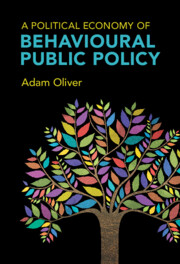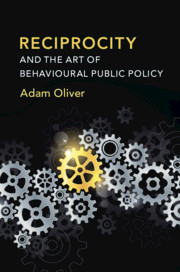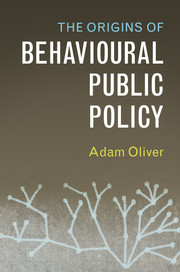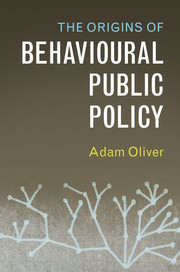A Political Economy of Behavioural Public Policy
Behavioural public policy has thus far been dominated by approaches that are based on the premise that it is entirely legitimate for policymakers to design policies that nudge or influence people to avoid desires that may not be in their own self- interest. This book argues, instead, for a liberal political economy that radically departs from these paternalistic frameworks. Oliver argues for a framework whereby those who impose no substantive harms on others ought to be free of manipulative or coercive interference. On this view, BPP does not seek to “correct” an individual's conception of the desired life. This book is the third in a trilogy of books by Adam Oliver on the origins and conceptual foundations of BPP.
- Uses an autonomy-respecting yet interventionist approach to provide guidelines for how behavioural science can – and, should, or should not – inform policy action
- End of each chapter includes 3 'food for thought' questions, encouraging the reader to think deeply about the content of the associated chapter by reflecting upon and critiquing the material
- Part of a trilogy that provides deep insight into this still relatively new (but significant) field of public policy
Reviews & endorsements
‘A Political Economy of Behavioural Public Policy is packed with insights regarding the role of government. Adam Oliver’s concerns with the role of reciprocity in human life take behavioural economics one step further. In his new version of political liberalism, ideally, governments free people to adopt their own views regarding how they can contribute to the happiness of others - and, as a by-product, they get a sense of worth from making such a contribution.’ George Akerlof, Nobel Laureate in Economics, 2001
‘Adam Oliver’s newest book, the coda to his trilogy, is essential reading for everyone interested in the political economy of behavioural public policy. Though rooted in classical liberalism, it articulates a coherent argument for limited government regulation to curb abuses of autonomy by those who would selfishly impose behaviourally informed harms on others, rather than to ‘correct’ behaviorally influenced choices. The book rewards readers with Oliver’s insightful and provocative perspective.’ B. Douglas Bernheim, Stanford University
‘Essential reading for anyone eager to delve deeper into the realm of behavioural public policy.’ Olga Danylenko, LSE Review of Books
Product details
February 2023Hardback
9781009282567
250 pages
235 × 155 × 17 mm
0.52kg
Available
Table of Contents
- Introduction
- 1. Setting the scene
- 2. Other voices
- 3. A kingdom of ends
- 4. The view from nowhere
- 5. Nourishing flourishing
- 6. Anyone for desert?
- 7. Private matters
- 8. Public matters
- 9. The lives of others
- 10. Summing up
- Bibliography.






